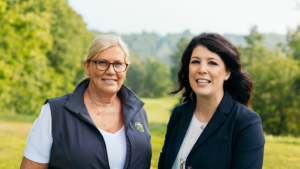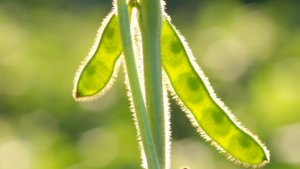Farm women and mental health
RESEARCH FOCUSES ON GENDER AND CLIMATE CHANGE

MENTAL HEALTH — AND its impact on farmers and the agricultural community — has become a more talked about subject in recent years, thanks, in part, to research conducted at the Ontario Veterinary College (OVC) at the University of Guelph in 2016 and 2021.
Led by epidemiologist Dr. Andria Jones-Bitton, the research found that farmers were at higher risk than the general population of experiencing stress, anxiety, and depression. And with 40 per cent of respondents saying they were reluctant to seek help for mental health concerns, the agricultural industry has responded with several newly developed tools, programs, and resources to help farmers manage their mental health and get support when and where it is needed, including programs through the Canadian Mental Health Association, Do More Ag, and the Ontario Federation of Agriculture. Mental health topics now frequently feature at the top of farmer-meeting agendas; a welcome sign that the agricultural community is willing to talk about these important topics.
WOMEN AT HIGHER RISK
In the 2021 study, Jones-Bitton, post-doctoral researcher Dr. Brianna Hagen, and master’s student Rochelle Thompson found that farm women, in particular, scored higher across many of the measures, including depression, anxiety, and stress, and lower scores for resilience.
“We looked at the qualitative interviews, and in those interviews, there were a lot of gender issues. Women were talking about how they contribute a lot of great work on the farm and how their work contributes to the success of the farm; it’s not recognized as ‘farm work'”, says Thompson. “So [some] women don’t necessarily identify as farmers themselves. Not being recognized as being a farmer and having valued work contributes to their mental health concerns.”
And while getting support, taking time for self-care, and finding opportunities for rest and rejuvenation were recognized as important for men and women, women reported that it is challenging for them to find the time to do so.
“Women were saying ‘we don’t have any time; there is so much work we’re doing on the farm,'” says Thompson. “It may not have been direct income-earning work, but is so much work.”
Being primary caregivers for children or elderly relatives, especially in the context of the Covid-19 pandemic, responsibilities around maintaining the home, farm work, and off-farm work were among the multiple sources of stress for women.
“All of these many different roles can be overwhelming,” says Thompson.
FARMER-LED RESEARCH
To build upon the 2021 study results, Thompson, who is also a full-time chicken producer from Rockton, Ontario, is currently studying the impact of climate, gender, and mental health as part of her PhD studies. Working with Jones-Bitton, Hagen, and Dr. Sherilee Harper, Thompson is interviewing a broad cross-section of farmers from across the industry, with input from diverse groups, including women farmers and farm wives, black, Indigenous and people of colour, and first-generation farmers.
“We’re looking at people’s perspective of climate change, what they’ve done to prepare their farm, whether they’ve seen any impacts of climate change themselves, and how to wrap their head around all the uncertainties that come with [climate change],” says Thompson.
Because women are more at-risk for adverse mental health outcomes, the impact of climate change on farmers’ mental health is being studied through a gender lens.
The study is ongoing; farm women are encouraged to contact Thompson to participate at rthomp10@uoguelph.ca. Ontario Grain Farmer will follow Thompson’s research and share relevant results as they are available.
SUPPORT IS AVAILABLE
“We’ve seen such a huge burst of new organizations and different resources,” says Thompson. “People are more willing to talk about mental health.”
The launch of the Canadian Centre for Agricultural Wellbeing (www.ccaw.ca), led by Dr. Brianna Hagen, is an outcome of the ground-breaking research at OVC. With goals that include advancing mental health research, providing evidence-based support and programming, and empowering farmers and agri-food workers to take care of their mental health, the Centre will act as a hub to bring together multi-faceted approaches to supporting mental health in the agriculture sector and provide training and resources for mental health professionals that are specific and relevant to the agriculture sector.
If you or someone you know is in need of mental health support, programs specifically for farmers and the agricultural community include:
In the Know: 4-hour mental health workshop created to educate the agricultural community.
The Guardian Network: A volunteer suicide prevention program, the Guardian Network was built to support Ontario’s farming community.
The Farmer Wellness Initiative: Farmers across Ontario and members of their households have access to free counselling sessions with a mental health professional. The mental health professionals have received training to understand the unique needs of Ontario farmers. Accessible 24 hours a day, seven days a week, 365 days a year, in English and French, farmers can call 1-866-267-6255 to speak to a counsellor.
Find out more about these programs at www.agriculturewellnessontario.ca. •












